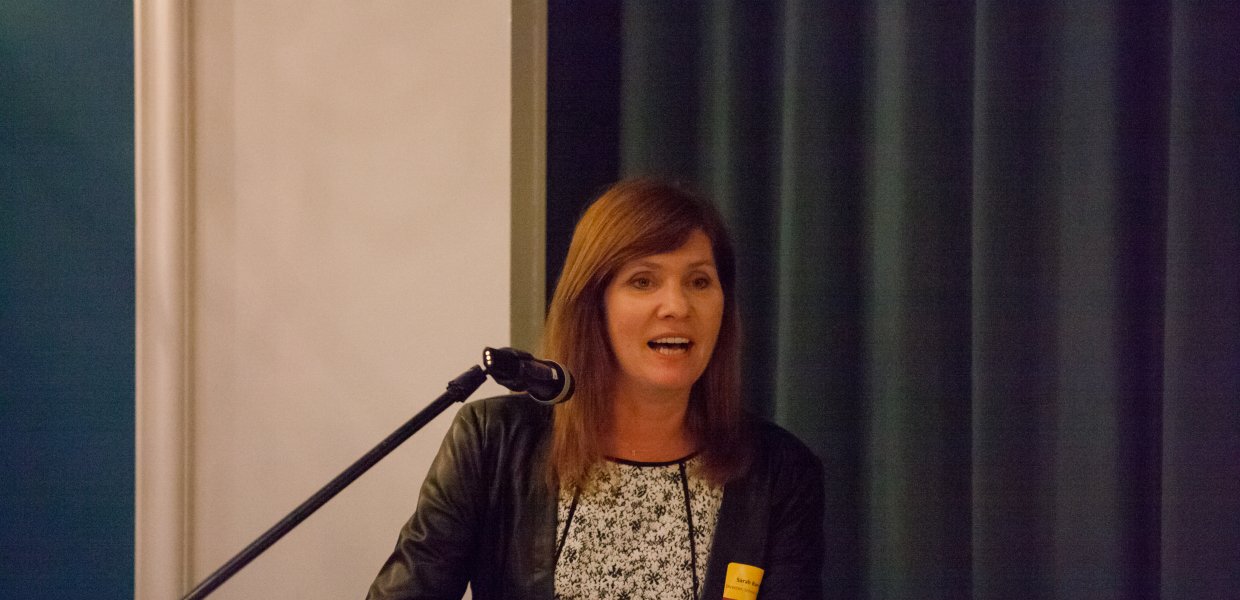Buying a (RED) shirt from Gap raises money for AIDS research. Driving a Toyota Prius uses less gasoline than a typical car.
So does purchasing these products turn the buyer into a social activist?
A new book co-edited by communication professor Sarah Banet-Weiser and Queens College professor Roopali Mukherjee explores questions such as this.
“Commodity Activism: Cultural Resistance in Neoliberal Times” (NYU Press) analyzes the struggles over what social activism means, who takes shape as activists in contemporary society, and whom such activism is imagined to serve.
“How is it that more people in the United States are ‘participating’ politically by buying Starbucks, supporting fair trade products, and looking for companies that have a good green record?” Banet-Weiser asked. “How is it that more people are participating in efforts that seem to be about social justice, but we still have in 2012 an incredibly powerful movement about the 99 percent? We still have these vast inequities in wealth. We have corporate greed and domination. But more of us are supposedly acting politically. How do we make sense of that?”
The book is divided into three parts:
- Brand, Culture, Action
- Celebrity, Commodity, Citizenship
- Community, Movements, Politics.
Essays include subjects such as the Dove Real Beauty Campaign (authored by Banet-Weiser), celebrity activists Angelina Jolie, Brad Pitt and Salma Hayek, and “blood diamonds” mined in Central and West African war zones (authored by Mukherjee). Communication professor Alison Trope wrote the piece on Jolie, and doctoral student Melissa Brough wrote a chapter on humanitarianism.
Banet-Weiser and Mukherjee argue that in Western culture, people often participate in social activism by simply buying a product.
“This book explores the range of that participation and the contradictions inherent in grafting philanthropy and social action onto merchandising practices, market incentives and corporate profits,” Banet-Weiser and Mukherjee wrote in the book’s introduction.
The idea for the book began when Banet-Weiser and Mukherjee wrote “eerily similar” calls for panels at the 2008 International Communication Association Conference in Montreal, Banet-Weiser said. The ICA connection came full circle last year in Boston when several of the book’s authors gave presentations on their essays.
“We don’t say in the book, ‘This is what you should do,’” Banet-Weiser said. “It’s more about asking people to be critically aware of both political activism and the way in which they relate to commodity, and to not easily allow one to stand in for the other.”
Nick Couldry, author of “Why Voice Matters: Culture and Politics After Neoliberalism,” wrote in a review that Mukherjee and Banet-Weiser's book is “smart, empirically rich and globally wide-ranging” and that it “provides us with very welcome coordinates in this difficult terrain.”
“Commodity activism has a long history but never has its significance been more complex to unravel than today, when the boundaries and direction of political action are unclear, commercial forces mobilize consumers’ values to secure their emotional loyalty, and individual consumers hope their choices mean that ‘something is being done,’” Couldry said.
Banet-Weiser said she does not necessarily think activism has been “transformed” into a branded commodity.
“I’m careful with the word ‘transformed’ because it assumes it was one thing and now it’s different,” she said. “I do think that there are significant changes in culture, technology and how people express themselves. It doesn’t make sense to hearken back to a time of nostalgia when people thought politics were politics, and were clearly separated from consumerism. It stifles us to continue to lament for a time when consumer culture wasn’t shaping our every political move.”
She said she and Mukherjee instead wanted to give the readers examples of commodity activism and explain them in-depth. Then, readers can think about what should be done about the issues and explore how they can be shifted.
“There have always been ways that consumer culture has provided a context for political action,” Banet-Weiser said. “What we’re noticing now is that the intersections between consumer culture and political culture are increasingly blurred. We need to question what that means to us. That’s what this book is tracing.”
Commodity Activism: Cultural Resistance in Neoliberal Times
More on Banet-Weiser






